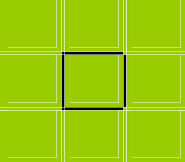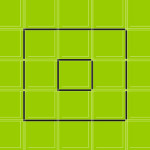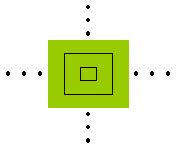Copyright © 2002 by Ronald Pisaturo. All rights reserved.
The Table of Contents and Introduction of this 8,000-word essay are shown here. The remainder of the essay is no longer available for purchase. The content of this essay may be incorporated into a future work.
December 6, 2002
Contents
1 The Problem
2 How is Finite Extension of the Universe Possible?
2.1 Must Extension Be Surrounded By More Extension?
2.2 The Concept “Universe”
2.3 Can the Universe Have a Shape?
2.4 Possible Meanings and Measures of the Extension of the Universe
2.5 Can the Universe Expand or Contract?
3 How is Infinite Extension of the Universe Possible?
4 The Notion that the Universe Has No Extension
5 A Brief Treatment of Time
6 Summary and Conclusion
An age-old question is: Is the universe finite in physical extent, or is it infinite? Both answers may seem, on the surface, to be impossible.
A finite universe may seem impossible. We recognize the end of physical extension of an entity partly by observing a boundary or border shared by the entity and something else extending outside or beyond the entity. In other words, for all extension that exists, there seems to be a need for further extension surrounding it; no matter how much extension exists, there must exist even more of it; in other words, there must be an infinity of extension. And so, how can the universe be finite in extent?
In other words, if this much extent
exists, then this much extent
must also exist. And then this much extent
must also exist. And so on in an infinite sequence.
On the other hand, an infinite universe seems impossible too. If the universe is infinite in extent, then an actual infinity, or an infinite actuality, exists. Aristotle argued that there is no such thing as an actual infinity.[1] An actual, or completed, infinity seems to be literally a contradiction in terms; it seems to entail an end of something without an end, a finish to something without a finish.
Are both alternatives indeed impossible, or is one or more of these alternatives possible? And is this alternative a false alternative? Is there an alternative to these two choices?
One alternative theory, sometimes put forth because the other two choices seem impossible, is the notion of “curved space.”
This essay[2] will argue that none of the these hypotheses can be ruled out for being contradictory. We cannot rule out, as contradictory, the hypothesis that the universe is finite in extent, nor that it is infinite in extent, nor that it curves back on itself. (Furthermore, there is nothing contradictory in the hypothesis, part of the well-known “Big Bang” theory, that the universe is expanding.) Nevertheless, we can rule out some of these hypotheses on the grounds that they are arbitrary, i.e., unsupported by any evidence.
I will also briefly discuss the claim that all these hypotheses are invalid, and that instead the concept of “extension” does not apply to the universe at all; i.e., the universe has no extension. I will argue that this claim avoids the real question, and implicitly accepts—and concurrently rejects—the premise of infinite extension.
Finally, I will deal briefly with the issue of time. Applying the same philosophical principles I rely on for my arguments about extension, I will argue that there is nothing contradictory about the hypothesis, another aspect of variants of the Big Bang theory, that there was a beginning of time.
The theses of this essay are important for at least the following reasons.
First, important scientific theories, such as the Big Bang theory, which are supported by enormous amounts of physical evidence, often are rejected or undercut based on philosophical arguments claiming that these theories are impossible. This essay offers a philosophical defense of such important theories, and at the same time indicates how those theories must be formulated to avoid actual philosophical errors.
More generally, many individuals who claim to uphold reason and philosophy are too hasty to reject scientific theories that appear to these individuals to contain philosophical errors or contradictions. These individuals end up making scientific claims based on “armchair science”; they make hasty generalizations, based on deductive philosophical arguments, unsupported by sufficient scientific observation of reality. In so doing, these individuals not only attack worthwhile scientific theories; they also undercut the reputation of the philosophy they claim to uphold.
On the other hand, this essay attempts to illustrate the proper and indispensable role of philosophy in understanding and weighing evidence for scientific theories.
Finally, the seeming contradictions in all possible answers to age-old cosmological questions is sometimes used by mystics and skeptics to attack man’s faculty of reason as such. These individuals claim that the contradictions inherent in all rational possibilities demonstrate that man will never comprehend the universe by means of reason alone. This essay will demonstrate that there is nothing contradictory or intractable about the nature of the universe, and that reason, based on scientific observation guided by rational philosophy, is our means—a very potent means—of knowing that nature.
[1] For Aristotle’s account of the infinite, see Physics, Book III, Chapters 4 through 8 (202b30 through 202a30).
[2] I would like to thank several individuals who read early formulations of my ideas on these issues, and who gave me valuable feedback: Glenn Marcus, Travis Norsen, and Shayne Wissler. However, these individuals do not necessarily agree with all or even most of my conclusions or formulations. I take sole responsibility for any and all errors, large or small, that may be in this essay.
The Table of Contents and Introduction of this 8,000-word essay are shown above.
The remainder of the essay is no longer available for purchase. The content of this essay may be incorporated into a future work.


